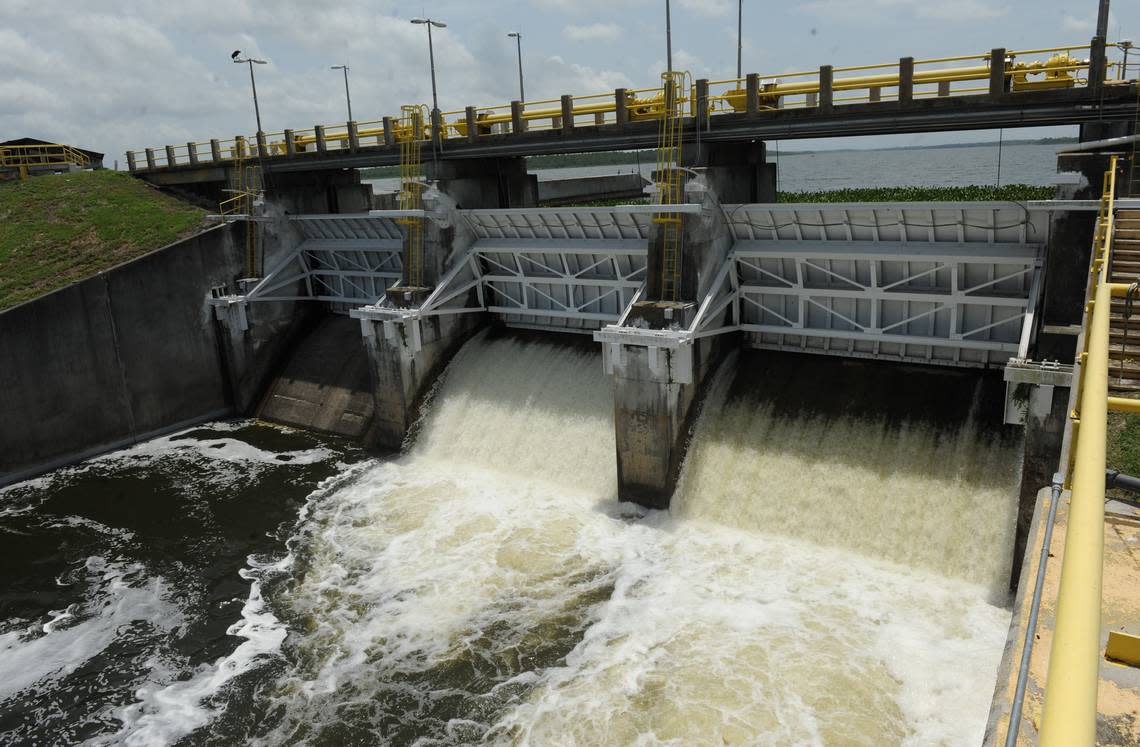Independent tests find no blue-green algae toxins in Manatee tap water, county says

After a bloom of blue-green algae in the main supply of Manatee County’s public drinking water raised safety concerns last week, county officials say that an independent firm has tested the water for toxins.
“Rigorous independent testing by GreenWater Laboratories has been conducted during this bloom for a variety of cyanotoxins, and none have been detected in the drinking water,” county officials said in a news release Tuesday afternoon.
Cyanotoxins are water-soluble toxins produced by some varieties of blue-green algae that can cause illness in humans when breathed in, touched or ingested.
The bloom in the Lake Manatee Reservoir is causing a musty odor and taste in county drinking water, but officials say the blame for that lies on a non-toxic compound called geosmin.
“The county would like to assure the public that the compound responsible for the taste and odor is identified as geosmin, and it is not an algal toxin. While certain blue-green algae can produce toxins, it is important to note that not all blue-green algae blooms are toxic,” the county’s statement said.
The county’s efforts to test for toxins came after Suncoast Waterkeeper, a local water quality watchdog group, questioned the safety of the water last week.
In a statement, the group noted that cyanotoxins are not federally regulated and could pose health risks if not sufficiently removed from drinking water.
County officials said they were confident that the algae in the reservoir were not producing toxins based on the behavior of past blooms. Suncoast Waterkeeper executive director Abbey Tyrna called that logic “irresponsible.”
“The whole ‘trust us, we know it’s safe because we studied this in the past’ is insufficient when it comes to harmful algal blooms,” Tyrna said in an email last week. “We must encourage regular testing for all the toxins this species of algae can produce, their method, and the results.”
The county says blue-green blooms are a regular occurrence in the Lake Manatee Reservoir, but the current bloom is worse than in recent years. Officials attribute the severity to “prolonged hot and dry weather conditions.”
“As a result, the water treatment process includes the use of powdered activated carbon to mitigate the geosmin levels. Despite these efforts, the finished water may still retain elevated levels of geosmin, which can lead to an earthy/musty taste or odor for most of our residents,” the county said Tuesday. “It is crucial to emphasize that the water remains completely safe for consumption.”
Suncoast Waterkeeper did not immediately return a request for comment Tuesday.

